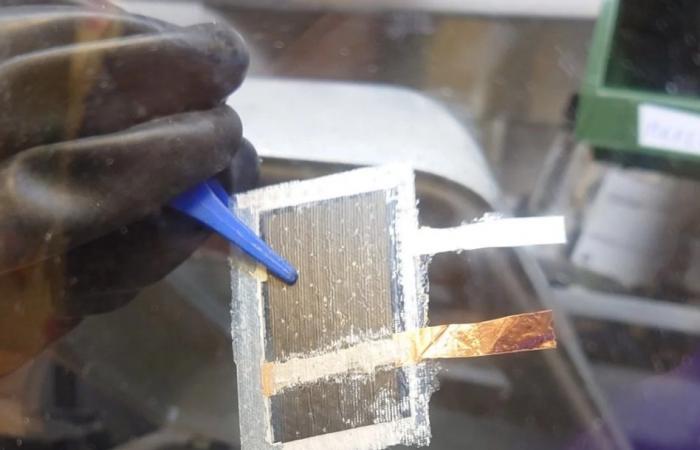Sinonusa company derived from the Chalmers University of Technology (Sweden) launched in 2022, says it is about to commercialize a carbon fiber technology for storing energy that could lead to what would be the world’s first structural battery.
The technology, which uses crystalline structures within carbon fiber to store energy, has been proposed for airplanes, electric vehicles and now in the huge blades of wind turbines to store excess energy.
“Sinonus has developed an incredible carbon fiber composite that acts as a battery,” Zetterström explained on LinkedIn.
“By replacing part of the structural material of the systems/applications with our multipurpose compound, it is possible to add electrical storage capacity with a sustained weight and volume, or decrease the weight and volume of the system with a sustained battery capacity (and, of course, some combination of both)
Massless batteries are a real possibility
Sinonus uses technology developed at Chalmers University of Technology (Gothenburg), where researchers have been studying the concept of structural carbon fiber batteries for years.
Massless batteries have been something of a holy grail of energy storage since 2007, because the weight of the battery disappears once it is part of the charging structure. Chalmers’ team, led by Professor Leif Asp, is one of the few to have found a material that works.
Their work has found that carbon fibers with small, poorly oriented crystals are good electrical conductors, but less rigid than versions of the material with larger, better oriented crystals. However, the rigidity comes with electrochemical properties that are not good enough to serve as a battery.
“A slight reduction in stiffness is not a problem for many applications, such as cars. Currently, the market is dominated by very expensive carbon fiber composites, whose rigidity is adapted to aeronautical use. Therefore, there is some potential here for carbon fiber manufacturers to expand its utilization,” Asp said.
Structural batteries
For airplanes that need very rigid materials, making carbon fiber thicker could offset the reduction in a material’s rigidity at the battery level. “The key is to optimize vehicles at a system level, based on weight, strength, stiffness and electrochemical properties. “This is a new way of thinking in the automotive sector, more accustomed to optimizing individual components,” he added.
“Structural batteries may not be as efficient as traditional batteries, but because they have a structural charging capacity, very large gains can be achieved at the system level. Additionally, the lower energy density of structural batteries would make them safer than standard batteries, especially since they would also not contain volatile substances.”
Since 2018, when this trailer was published, the team has been working on applications for how it could work in practice.
In 2021, the team produced a carbon fiber battery with an energy density of 24 Wh/kg, or about 20% capacity compared to comparable lithium-ion batteries at the time.
Carbon and glass fibers
The battery had a negative electrode made of carbon fiber and a positive electrode made of aluminum foil coated with lithium iron phosphate, separated by a fiberglass fabric in an electrolyte matrix. The next plan was to replace the aluminum sheet with load-bearing carbon fiber and a thinner separator.
At that time, Asp calculated that this battery could reach an energy density of 75 Wh/kg and a rigidity of 75 GPa, that is, as strong as aluminum, but lighter.
The trade-off for lower energy density is weight: lithium-ion batteries are very heavy, but if a lighter battery is part of the device, cars or airplanes powered by carbon fiber could begin to become a reality.






